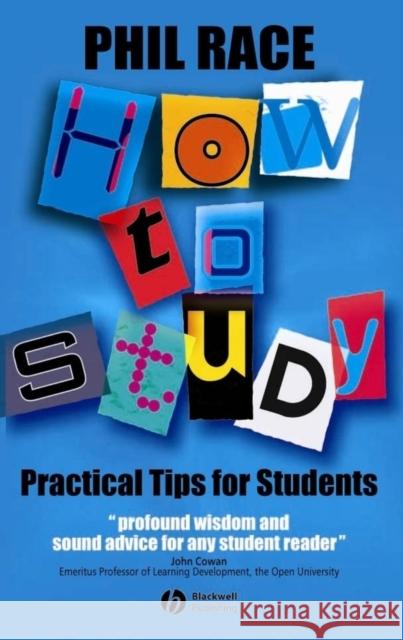How to Study: Practical Tips for University Students » książka
topmenu
How to Study: Practical Tips for University Students
ISBN-13: 9781405106931 / Angielski / Miękka / 2003 / 248 str.
How to Study contains around 1,000 practical tips, taking students at college or university from their first lectures through to their final exams and beyond.
- The ideal companion for all students at college or university.
- Contains around 1,000 practical tips, taking students from their first lectures through to their final exams and beyond.
- Helps students to get through assessments, with suggestions about how to write essays, give presentations, prepare for and sit exams.
- Gives advice on how to handle the ups and downs of being a student, including managing disappointments and getting out of trouble.
- Helps students to get a job, with tips on creating a powerful CV, filling in job applications and succeeding at interview.
- All the tips are written in a jargon-free, friendly style and are illustrated with humorous cartoons.











